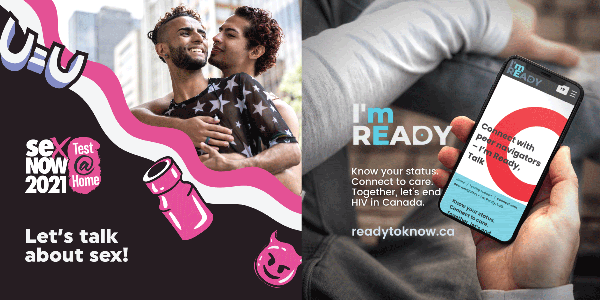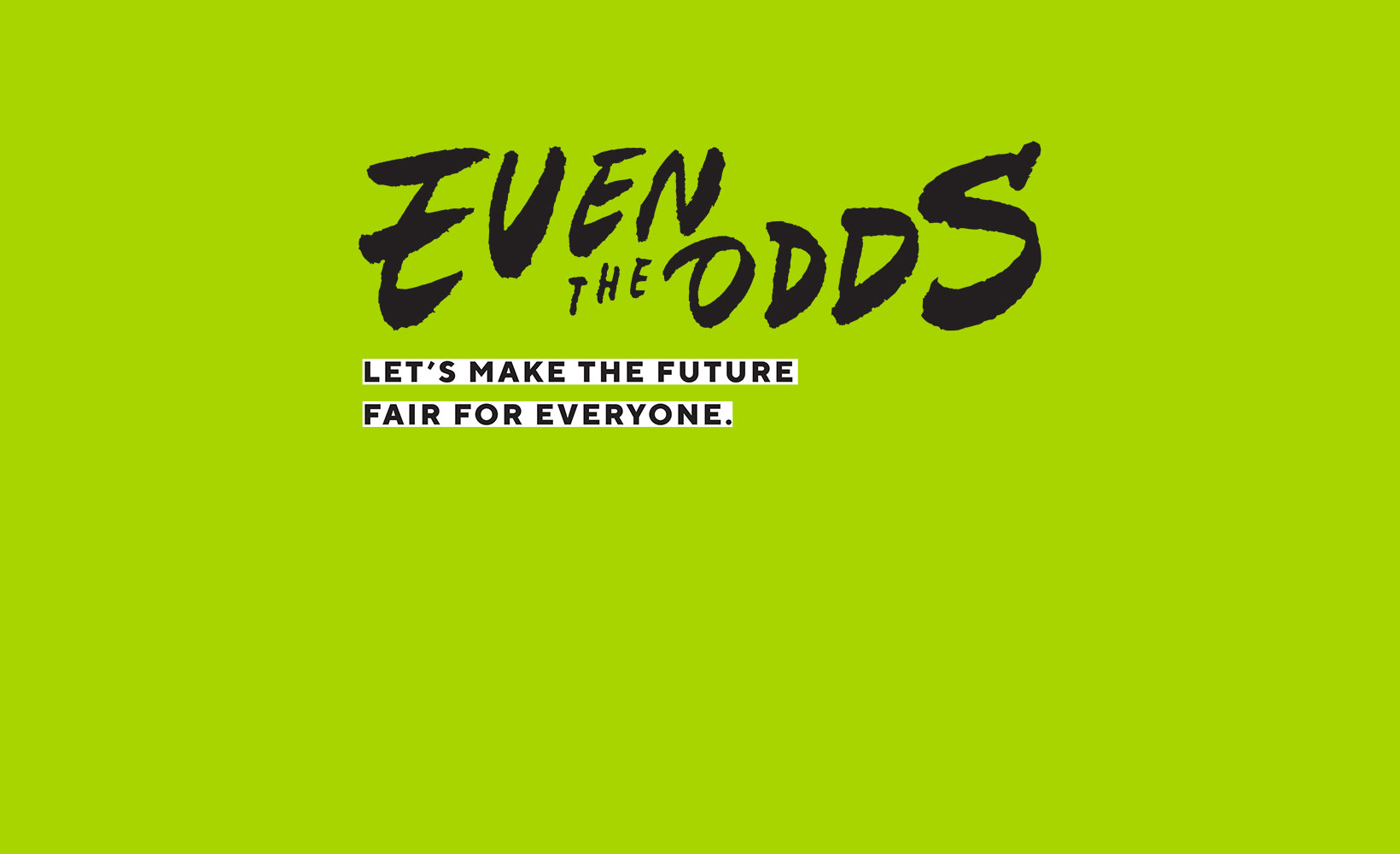Lire cet article en français
June 23, 2021 – Social and economic status often determine how easy it is for people to access the resources that are essential for good health. Staples Canada, The Working and Learning Company, and MAP, a world-class research centre based at St. Michael’s Hospital in Toronto, have announced a first-of-its-kind partnership called Even the Odds, a three-year, $3-million commitment that aims to tackle inequities and create healthier communities across Canada.
Rooted in the shared belief that everyone should have the opportunity to thrive, Even the Odds will come to life with a national awareness campaign, corporate donations, as well as in-store and online fundraising efforts. Donations will support MAP’s innovative research projects across Canada to address issues such as homelessness, unequal access to health care and medicine, and the lifelong effects of childhood poverty.
“We’re incredibly grateful for Staples Canada’s commitment and support,” said Dr. Stephen Hwang, Director, MAP. “We share a vision of a future that’s fair for everyone, and we hope it will inspire and energize people across Canada to learn more.”
In Canada, over 1.2 million children live in households that struggle to afford fresh fruit and vegetables, at least one million people sacrifice basic essentials to pay for medical prescriptions, and 235,000 are homeless every year. COVID-19 infections are also more than three times higher among people of colour. Internationally recognized for ground-breaking science and innovation, MAP scientists work in partnership with communities and government leaders to address these issues and more through the development of equity-focused program and policy solutions.
“As one of Canada’s largest retailers, we have a responsibility to contribute to and strengthen the communities in which we operate,” said David Boone, CEO, Staples Canada. “We are excited to help fund MAP’s innovative research programs to address inequities facing our communities, and to lend our support through our national reach, and our network of associates and customers.”
Even the Odds will launch with in-store and online fundraising on June 28, 2021. To learn more, visit staples.ca/eventheodds.
About MAP
MAP is a world-leading research centre dedicated to creating a healthier future for all. Through big-picture research and street-level solutions, MAP scientists tackle complex community health issues—many at the intersection of health and equity. MAP’s 27 scientists and over 120 staff and students work in partnership with communities, researchers, and government leaders across Canada to address issues such as homelessness, unequal access to health care and medicine, and the lifelong effects of childhood poverty. MAP is part of the Li Ka Shing Knowledge Institute of St. Michael’s Hospital, Unity Health Toronto. For more information, visit maphealth.ca.
About Staples Canada
Staples Canada is The Working and Learning Company. With a focus on community, inspiration and services, the privately-owned company is committed to being a dynamic, inspiring partner to customers who visit its over 300 locations and staples.ca. The company has two brands that support business customers, Staples Preferred for small businesses and Staples Professional for medium to large-sized enterprises, as well as five co-working facilities in Toronto, Kelowna, Oakville and Ottawa under the banner Staples Studio. Staples Canada is a proud partner of MAP through its Even the Odds campaign, which aims to tackle inequities in communities across Canada and helps make a future that’s fair for everyone. Visit staples.ca for more information or get social with @StaplesCanada on Facebook, Twitter, Instagram and LinkedIn.
Kathleen Stelmach, Staples Canada, 905-737-1147 Ext. 578, kathleen.stelmach@staples.ca
Noah Gomberg, Golin, 437-246-3975, ngomberg@golin.com
À chance égale : Bureau en Gros et le Centre MAP unissent leurs forces pour s’attaquer aux inégalités dans les collectivités partout au Canada
23 juin 2021 – Notre situation sociale et économique détermine bien souvent la facilité avec laquelle nous pouvons accéder aux ressources essentielles permettant de saines habitudes de vie. Bureau en Gros, l’Entreprise du travail et de l’apprentissage, et le Centre MAP, un centre de recherche mondialement reconnu établi à l’Hôpital St. Michael’s de Toronto, ont annoncé la création d’un partenariat unique en son genre. Intitulé À chance égale, cet engagement de trois millions de dollars sur trois ans vise à réduire les inégalités et à créer des collectivités plus en santé partout au pays.
Ancré dans la conviction profonde que tout le monde devrait avoir l’occasion de s’épanouir et de grandir, À chance égale prendra vie sous forme de campagne de sensibilisation nationale, de dons d’entreprise et de collecte de fonds en magasin et en ligne. Les fonds amassés permettront d’appuyer les projets de recherche novateurs du MAP à l’échelle du pays, dont l’objectif premier est de trouver des solutions à des problèmes comme l’itinérance, l’accès aux soins de santé et aux médicaments ainsi que les effets collatéraux permanents de la pauvreté chez les enfants.
« Nous sommes extrêmement reconnaissants de l’engagement et du soutien de Bureau en Gros », a déclaré le Dr Stephen Hwang, directeur du MAP. « Nous partageons la même vision d’un avenir équitable pour tous et nous espérons que cela inspirera et stimulera les gens de partout au Canada à en apprendre davantage sur ces enjeux. »
Au Canada, plus de 1,2 million d’enfants vivent dans des ménages qui peinent à s’offrir des fruits et des légumes, au moins un million de personnes doivent se priver de produits essentiels afin de pouvoir se payer des médicaments d’ordonnance et 235 000 se retrouvent sans abri chaque année. Les cas de COVID-19 sont au moins trois fois plus élevés chez les personnes de couleur. Reconnus internationalement pour leurs innovations et leurs travaux scientifiques de pointe, les chercheurs du MAP travaillent en partenariat avec les collectivités et les dirigeants gouvernementaux pour s’attaquer, notamment, à ces problèmes de société par l’élaboration de programmes et de politiques axés sur l’équité.
« En tant que l’un des plus grands détaillants au Canada, nous avons la responsabilité de contribuer activement au bien-être et au développement des collectivités au sein desquelles nous opérons », a déclaré David Boone, PDG de Staples Canada. « Nous sommes heureux d’aider à financer les programmes de recherche révolutionnaires du MAP visant à s’attaquer aux inégalités auxquelles sont confrontées nos communautés, et d’apporter notre soutien par le biais de notre portée nationale et de notre réseau d’associés et de clients. »
Le lancement d’À chance égale aura lieu le 28 juin 2021 avec une collecte de fonds en magasin et en ligne. Pour de plus amples renseignements, consultez le bureauengros.com/achanceegale.
À propos de MAP
Le Centre MAP est un centre de recherche de premier plan reconnu à l’échelle mondiale qui se consacre à la création d’un avenir plus sain pour tous. Grâce à des recherches qui donnent une vision d’ensemble et à des solutions concrètes, les scientifiques du MAP s’attaquent à des problèmes de santé communautaire complexes, dont bon nombre se situent au croisement de la santé et de l’iniquité. Les 27 scientifiques et plus de 120 employés et étudiants du MAP travaillent en partenariat avec des collectivités, des chercheurs et des dirigeants gouvernementaux de partout au Canada pour s’attaquer à des problèmes comme l’itinérance, l’accès inégal aux soins de santé et aux médicaments ainsi que les effets collatéraux permanents de la pauvreté chez les enfants. Le MAP fait partie du Li Ka Shing Knowledge Institute de l’Hôpital St. Michael, un établissement d’Unity Health Toronto. Pour obtenir plus de renseignements, visitez le site maphealth.ca/fr.
À propos de Staples Canada/Bureau en Gros
Staples Canada/Bureau en Gros est l’Entreprise du travail et de l’apprentissage. En mettant l’accent sur la collectivité, l’inspiration et les services, la société privée est déterminée à jouer le rôle de partenaire dynamique et inspirant pour tous les clients qui visitent ses quelque 300 succursales et le site bureauengros.com. L’entreprise possède deux sous-marques qui soutiennent ses clients commerciaux – Bureau en Gros Privilège pour les petites entreprises et Staples Professionnel pour les moyennes et grandes entreprises – ainsi que cinq studios de travail partagé à Toronto, Kelowna, Oakville et Ottawa sous la bannière Staples Studio. Staples Canada/Bureau en Gros est fier de travailler en partenariat avec le Centre MAP dans le cadre de sa campagne À chance égale, qui vise à s’attaquer aux inégalités dans les collectivités partout au Canada et à créer un avenir équitable pour tous. Consultez bureauengros.com pour en savoir plus ou suivez @BureauenGros sur Facebook, Twitter et Instagram.
Kathleen Stelmach, Staples/Bureau en Gros, 905-737-1147, poste 578, kathleen.stelmach@staples.ca
Noah Gomberg, Golin, 437-246-3975, ngomberg@golin.com





